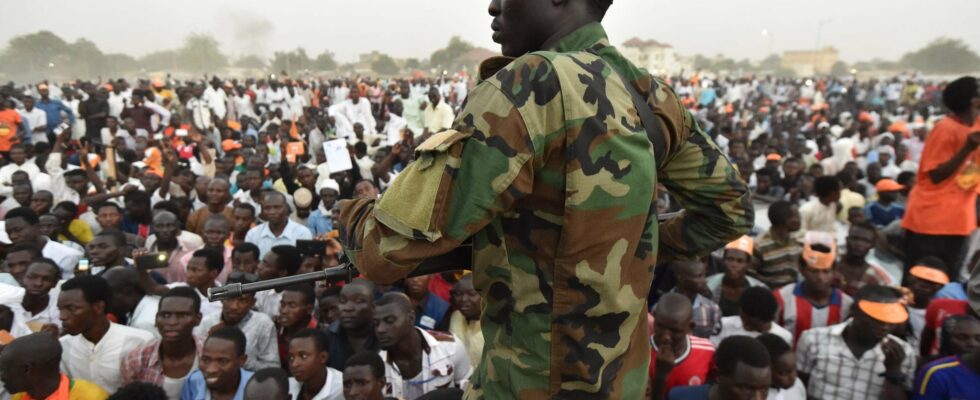A mysterious commando attacked the Chadian presidential palace in N’Djamena on Wednesday evening, January 8, leaving at least one dead and three injured among the guards, including two in serious condition. 18 of the 24 attackers were killed, according to the government, which cited an attack by drugged and alcoholic “nickel feet”.
This took place a few hours after the visit to N’Djamena of the Chinese Minister of Foreign Affairs, Wang Yi, who had several meetings with Chadian leaders, including one at the presidential palace with the head of state, Mahamat Idriss Déby, who was at the presidential palace at the time of the attack.
“The situation is completely under control. […] This entire attempt at destabilization has been eradicated,” assured Abderaman Koulamallah, the spokesperson for the Chadian government and Minister of Foreign Affairs, in a video published in the evening on Facebook.
Disembarking from a trailer truck in front of the presidential palace, the attackers “stabbed the four guards present”. They then entered the presidency, then another guard fired to raise the alarm and “they were very easily controlled”, detailed the spokesperson on national television. Tanks were then deployed in the streets, including one in front of the central police station, and armed police officers stationed at street corners. In these neighborhoods in the center of the capital, people, visibly worried, rushed to get back in their cars or motorbikes to return home.
“Completely drugged”
Abderaman Koulamallah estimated that the attack was “probably not terrorist”, while persistent rumors spoke of a possible attack by Boko Haram jihadists, and that it had been carried out by a “collection of nickel-plated feet” drugged and alcoholic who came in civilian clothes from a poor neighborhood in the south of the city with “weapons, cutters (machetes, editor’s note) and knives”. According to him, they had with them small bottles “filled with alcohol” like whiskey, and the six survivors were “completely drugged.” All roads leading to the presidency were quickly closed to traffic.
Heavy gunfire was heard for nearly an hour in neighborhoods near the presidency, before stopping around 8:50 p.m., AFP journalists noted. While some security sources initially spoke of a heavily armed commando, the government spokesperson stressed that the attackers in fact had “no weapons of war” with them. In the end, it is a “completely desperate” attack, “quite incomprehensible” and without a “serious” reason, he said, emphasizing, to reassure the population in this country with a history punctuated by attacks. State and rebel attacks, that “no threat currently weighs on the country” and its institutions.
End of 60 years of military cooperation with France
Chad, a poor landlocked country in the Sahel, announced by surprise at the end of last November that it was ending the military agreement between Paris and N’Djamena, marking the end of sixty years of military cooperation since the end of French colonization. Last May, three years of transition ended in N’Djamena, with the election of Mahamat Idriss Déby, brought to power by a military junta after the death of his father Idriss Déby, killed by rebels at the front in 2021. Threatened by rebel offensives, Déby senior was able to count on the support of the French army to repel them in 2008 and then in 2019.
Chadian forces are regularly attacked by Boko Haram jihadists, particularly in the Lake Chad region (west). At the end of October, a Boko Haram assault on a military base left fifteen officers dead there, according to the Chadian authorities. In response, President Déby “personally” launched an operation called “Haskanite”, which he led from the Lake Chad province for two weeks in early November.
